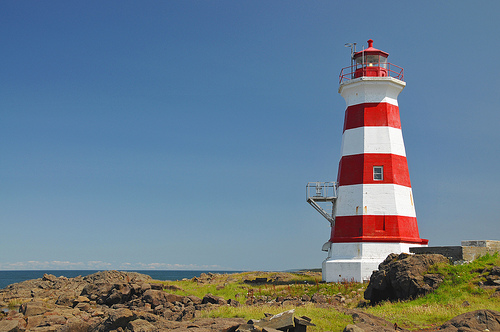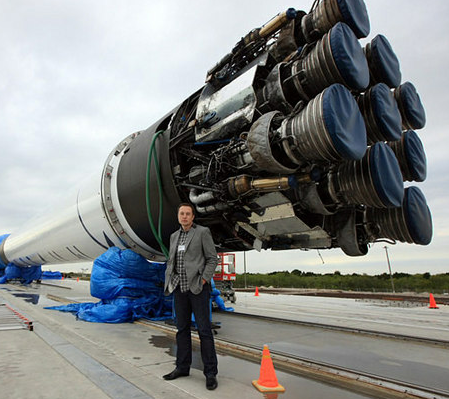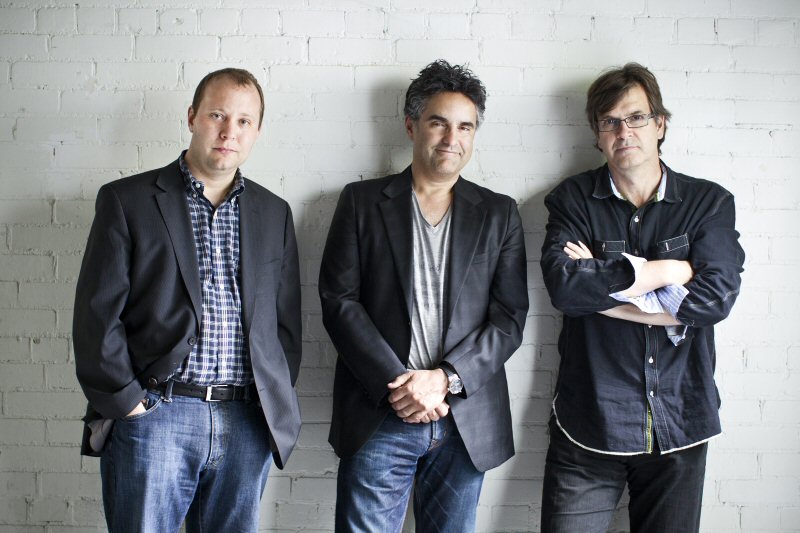Editor’s note: This is a cross post from Onboardly blog written by Renee Warren (@renee_warren) & Heather Ritchie (@heatheranne) of Onboardly. Follow them on Twitter @onboardly or Onboardly.com. This post was originally published in July 14, 2012.

@danmartell of @getmoreclarity presenting – Motivation Trumps Knowledge
Well, it certainly was a memorable event. With no surprise we heard some excellent speakers and saw the likes of Dave McClure flipping the bird. It wouldn’t be a startup event without such a character. And for the other startups we got the chance to talk to and (finally) meet, it was well worth our time, money and bearing the heat!
Upon arrival we bumped into the fabulous @Brydon who staggeringly spoke to us about the fun times had on the startup train. Then we quickly sat down to a chat with Caitlin and Neil of @CreamHR. We were wow’d by the projects they are working on. Mixing psychology with real-time job talent hiring, their product quickly allows you to determine if a candidate is in the top 15% of people qualified for a particular position.
Off to the festival we went meeting brilliant startup after startup, and of course reconnecting with some of our favorite people from events past including the always entertaining/stylish @davidcrow, the lovable gang from @bnotions, and a huge cohort from @launch36, et al.)

East Coast represent! @launch36 and more startups in attendance.
On Thursday night, we hosted a founders dinner at Holder – one of Montreal’s finest restaurants. Thanks to everyone who joined us to make the dinner conversation spectacular. We were outnumbered 16-2 guys/gals so considered ourselves very lucky ladies indeed.

@startupCFO, @DavidCrow, @heatherAnne, @renee_warren, @kenseto, @mattskilly, @zakhomuth, @andrewsider and many more at dinner.
Also a ton of fun was the Wavo launch party, where they turned l’Augerge Saint-Gabriel into a booming hotspot, DJ’ed by none other than Real Ventures Mark MacLeod (@StartupCFO) & FounderFuel’s Ian Jeffery (@ianmtl). True (semi-hidden) talent exposed!
We could go on to mention every single person we met (all amazing!), but this post would go on for years. Instead, we’ll do our best to explain how awesome it was in a few key points in hopes of enticing you to do next year (or go again!).
Why You Should Attend @StartupFest Montreal:
- It’s a mini SXSW without the pressure to attend every open bar party
- There is less swag than SXSW, which means you aren’t paying for extra weight for your suitcase with all the new T-shirts you’ve accumulated
- You get to see the same people more than once and actually get to know them (smaller groups = more meaningful conversations)
- The caliber of attendees is amazing – no fluff; just good people/good ideas
- You get the chance to pitch your startup to grandmothers and teenagers
- Investors galore throughout the mix of attendees; lots of opportunity for 1-on-1’s
- It is in one of Canada’s most amazing cities: Montreal
- The speakers are amazing; short 20-minute talks keep things moving swiftly
- The organizers ride around on scooters. Catch them if you can
- $50k Startup Prize! (Congrats @Jintronix!; and runner-up @openera on the @founderfuel prize.)
- Local food vendors in lieu of cafeteria fare; crepes, pasta, international delights
- Ice cream truck. Enough said
- Mentor tents, live TV interviews, and cold beer
While we’re just now coming down from our conference high (and catching up on our sleep), we wanted to take this opportunity to sincerely thank organizers for a great time. Philipe Telio, (@ptelio) you have done it again! You guys killed it. And you can guarantee we’ll be there next year.
Au revoir Montreal. A bientot!
Renee & Heather









